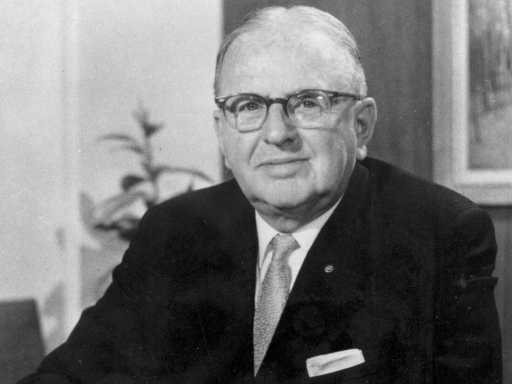
The Power of Positive Thinking: Embracing Norman Vincent Peale’s Philosophy
Norman Vincent Peale (1898-1993) was born in Ohio and was ordained as a Methodist but later moved on to the Dutch Reformed Church in 1932. He spent 52 years as a pastor at the Marble Collegiate Church in New York City and was widely known as a speaker, radio and television personality, and author of numerous books. His most famous book, The Power of Positive Thinking, has sold over five million copies since its publication in 1952.
Peale’s folksy philosophy of encouragement, optimism, and self-help had its detractors. Some in the psychology profession criticized his perspective as unscientific and purely anecdotal and even likened it to a deleterious form of hypnotism. However, much of this criticism was unfounded and akin to taxi drivers objecting to competition from Uber.
When Peale dabbled in politics, he stirred even more controversy. In the 1950s, he spoke out against the idea of a Catholic president who might be swayed by pronouncements from the Vatican, which he believed could lead to divided loyalties. He opposed Kennedy and supported Nixon in 1960 for this reason. When asked about it, Illinois governor and two-time presidential nominee Adlai Stevenson famously replied, “I find the Apostle Paul appealing and the Apostle Peale appalling.”
In 1984, President Reagan honored Peale by bestowing upon him the Presidential Medal of Freedom. When Peale died on Christmas Eve 1993, President Bill Clinton remarked, “In a productive and giving life that spanned the 20th century, Dr. Peale lifted the spirits of millions and millions of people who were nourished and sustained by his example, his teaching, and his giving.” Among the millions of admirers was Scott Adams, creator of the popular Dilbert comic strip, who credited Peale with inspiring him to a successful career.
At the core of Peale’s message was a call to take charge of one’s life and not let negativity, pessimism, or victimhood sap one’s potential. He encouraged people to believe in themselves and their ability to overcome obstacles. His quotes such as “Believe that problems do have answers. Believe that they can be overcome. Believe that they can be handled. And finally, believe that you can solve them,” and “People become really quite remarkable when they start thinking that they can do things. When they believe in themselves they have the first secret of success” are timeless reminders of the power of positive thinking.
Peale’s message is particularly relevant today, where the political landscape often seems fraught with promises and disappointments. He believed that self-improvement and taking initiative could produce a sense of calm satisfaction and accomplishment, in contrast to the false promises of politicians seeking power by painting people as victims and themselves as saviors. Peale’s philosophy of intentional introspection, where one looks upon oneself as others may see them, and strives to fix their shortcomings, is a powerful antidote to the vanity and hubris of politics. As Peale said, “Our happiness depends on the habit of mind we cultivate. So practice happy thinking every day. Cultivate the merry heart, develop the happiness habit, and life will become a continual feast.”
By adopting Peale’s philosophy of intentional introspection and not relying on politicians, we can cultivate a habit of happy thinking and take charge of our lives. Instead of being victims of circumstances, we can be the masters of our destiny by believing in ourselves, finding creative solutions to problems, and welcoming challenges as opportunities. This positive mindset can help us achieve success and happiness in our personal and professional lives.
Norman Vincent Peale may have had his detractors, but his legacy lives on through his books, teachings, and the millions of people he inspired to adopt a more positive outlook on life. By embracing his philosophy, we can improve our lives and contribute to a better world.
Sources:

- https://youtu.be/H9lm2y_4cAE
- https://fee.org/articles/norman-vincent-peale-s-timeless-advice-take-charge-of-your-own-life-first/
- https://www.npr.org/2020/07/24/894967922/norman-vincent-peale-was-a-conservative-hero-known-well-beyond-his-era
- https://chat.openai.com/
- https://readloud.net/



